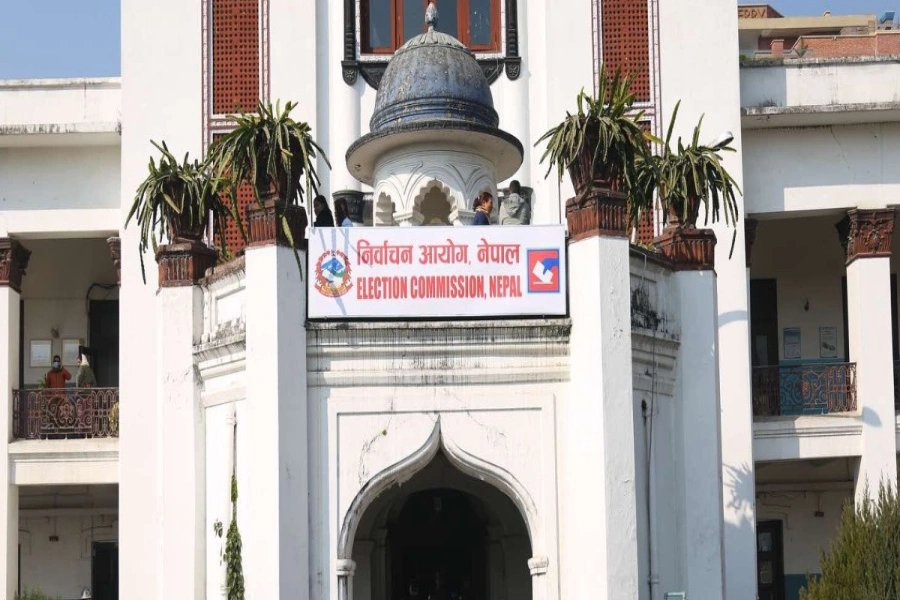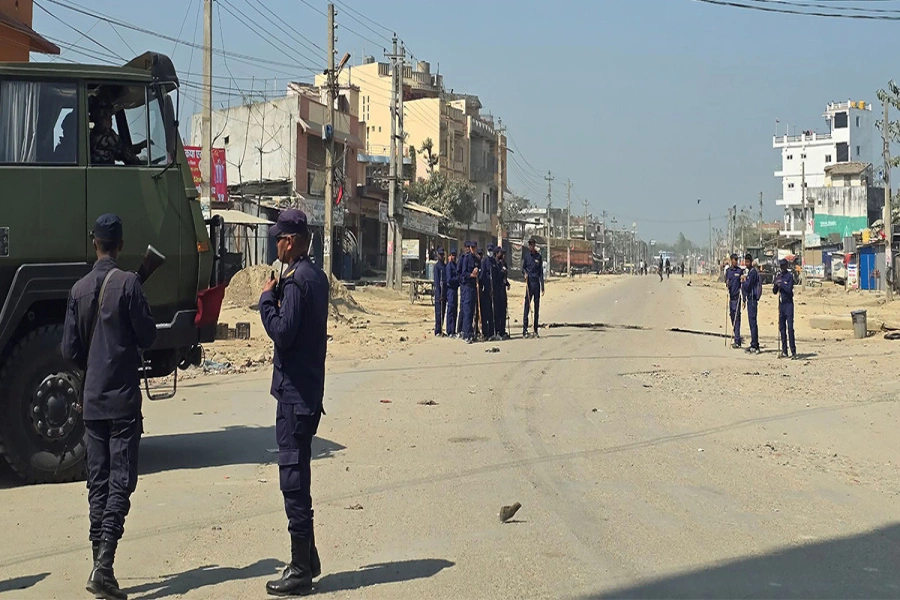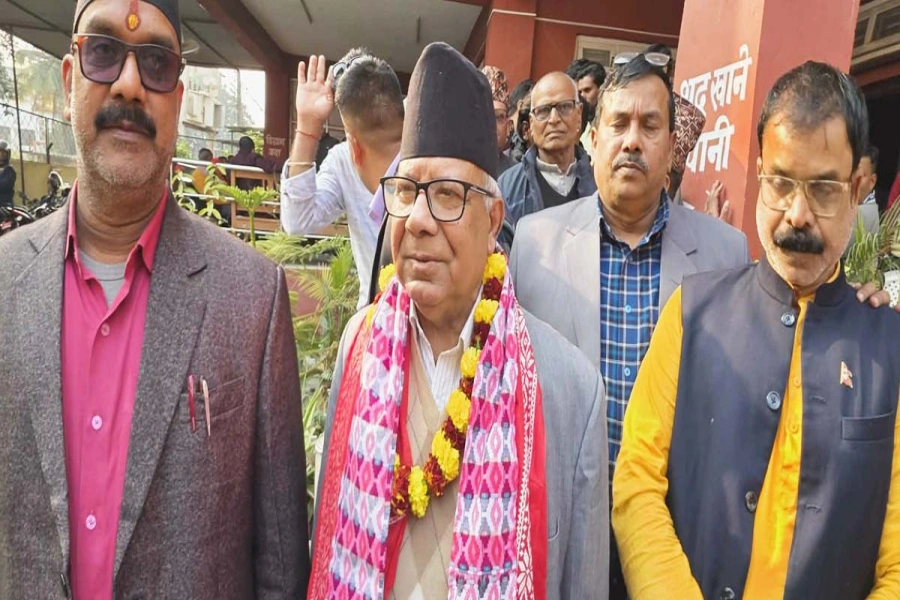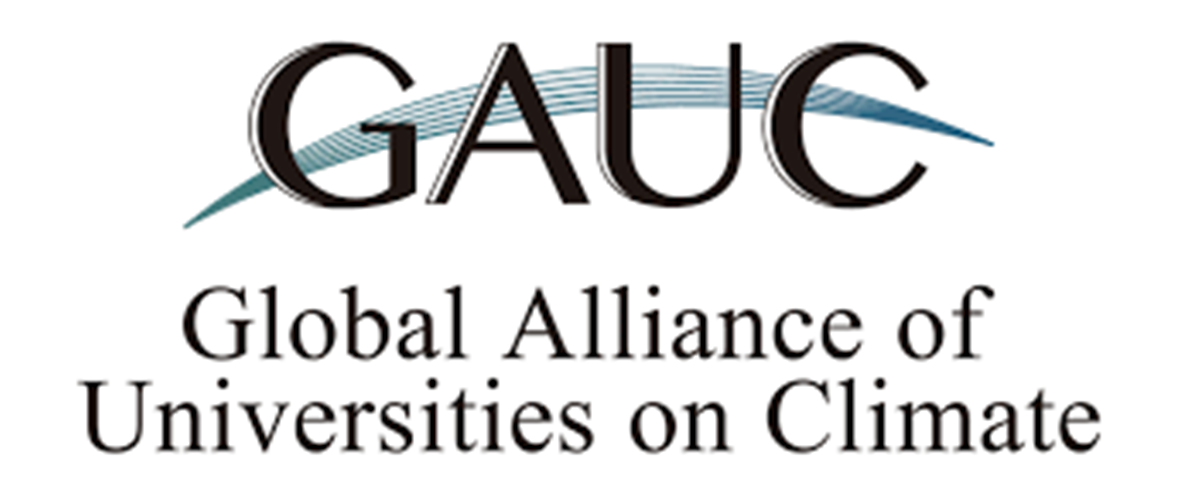Nepal faced several climate-related natural disasters this year—flooding, droughts, cloudburst and a delayed monsoon, among others, causing immense hardship to farmers and the poor. These events impaired the lives and livelihood of many marginalised people while increasing the risks for many others. And the intensity and magnitude of such events has been growing each year.
Such extreme climatic events are not limited merely to poor countries like Nepal; developed countries including the US have also faced widespread drought leading to crop failure, the recent flooding in Manila is another massive disaster and China too was hit by a typhoon, causing huge loss. The frequency of such events globally is increasing at an unprecedented rate.
Many of such events are directly linked to anthropogenic climate change, caused particularly by the developed countries because of their massive industrialization and economic development. However, developed countries are unwilling to take leadership and assume complete responsibility, despite having a greater capacity to tackle the problem.
Amidst this, the United Nations Framework Convention on Climate (UNFCCC) is negotiating a stringent international treaty to tackle climate change; this, however, is facing many hindrances. In the last several years, big international conferences have been organised only to see the process move at a snail’s pace, failing to lead to any agreement. Many participants in these negotiations agree that climate change has moved beyond an environmental agenda to a more political and economic issue, but the uncertainty on when the treaty will be agreed upon remains (though the Durban conference last year mandates for an agreement by 2015, to come into effect by 2020).
In an attempt to facilitate the agreement, UNFCCC is organising one such preparatory meeting in Bangkok that started on August 30 and will continue till September 5, ahead of the Conference of Parties (COP) meeting to be held in Qatar later this year. The signs, however, do not seem very positive as countries are dwelling more on their individual interests and are sticking to their non-progressive positions.
A senior negotiator from the Maldives, which is a multiple island nation in the Indian Ocean and extremely vulnerable to climatic challenges, shared his frustration, “This is an abusive process, sea levels are rising at an alarming rate and by the time we agree to an international instrument, half of my country will be under water.” He was hinting at the lack of progress in the negotiation and the ‘blocking’ strategy of the rich and powerful countries. Such thoughts have been expressed by other vulnerable nations too.
At these international negotiations, blaming each other and trying to point out how much the other country should to reduce its carbon emission (which is a major cause of climate change) is delaying the progress. Developed countries (mainly the US, Canada, the EU, Japan and Australia) are firm about bringing the emerging economies—termed BASIC (Brazil, South Africa, India and China)—on board to share the responsibility. The emerging economics, meanwhile, are refusing to come on board without any financial and technological support.
The UNFCCC convention emphasises the principle of “common but differentiated responsibility with respective capacity”, giving a clear indication that developed countries should take the major responsibility. The developed countries, meanwhile, argue that what the convention agreed to two decades back is less relevant now for major economies.
The first five-year emission reduction commitment period of the Kyoto Protocol (2008-2012) will finish by the end of 2012 and yet, there is no sign of the second period being agreed upon. This is very disturbing as the only legally binding instrument, which has fixed targets with compliance rules, might come to an end soon. Canada, which announced its withdrawal from the Kyoto Protocol, has triggered angry reactions among many progressive and developing vulnerable countries.
Senior climate change expert Dr. Saleemul Huq, who is attending the Bangkok conference, says, “With the present carbon reduction ambition that is on the negotiation table, we are heading towards 3.5 degree Celsius or higher increase in the global temperature, and this will affect every country including the rich and developed. Therefore, we should start looking into the issues of loss and damage (referring to the irreversible and permanent harm that is beyond adaptation).”
Huq argues that every county must take adequate steps to tackle climate change given their individual capacity—be it developed or developing. We have no time to keep arguing and continuing with this inaction.
Finance is another major hurdle. In 2009, developed countries agreed to provide US $30 billion as initial finance (2010-2012) and increase this amount to US $100 billion by 2020 for the developing countries, but there seem to be no signs of an agreement on mid-term finance, which is crucial for action on adaptation and mitigation in developing countries. Vulnerable country groups like the Least Developed Countries (LDC) and Small Island States are agitated because without adequate support in terms of finance and technology, tackling climate problems is nearly impossible.
Prakash Mathema, chief of the Climate Management Division at the Ministry of Environment, Science and Technology, who is leading the Nepali delegation in Bangkok said, “As an LDC country, Nepal is pushing for higher mitigation targets from the developed country parties, as we need significant reduction in carbon emission, and at the same time, support for implementing adaptation actions and low carbon development plans.”
“Since Nepal is taking over the chair of the LDC group from Gambia in 2013, we are holding bilateral meetings with key countries and negotiating groups to engage in relation building activities while also working closely with the current chair for a smooth handover,” adds Mathema. It is crucial that the vulnerable countries work together and keep pushing for ambitious actions.
It is equally imperative that the developed countries take the leadership and onus while the emerging economies play a supportive role. Little progress during the Bangkok conference will signal a bleak outcome in Qatar. Therefore, the civil society, which expresses doubt about the Qatar government since it is an oil producing country, should also be encouraged to take unprecedented leadership to solve this climate crisis.
The author is a member of the Climate Action Network and is attending the UN climate conference in Bangkok
rajupc80@hotmail.com
SHIFT for Our Planet: Youths urge authorities to make climate j...







































